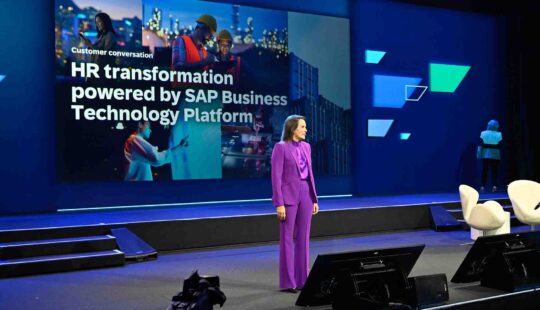Job seekers are rushing to seek out new jobs amid inflation and recession concerns, according to new research from Qualtrics and SAP.
Nearly three-quarters (72%) of job seekers say rising costs have played a role in their decision to look for a new job and more than half (55%) said news of an economic downturn made them more likely to start their job search now rather than six months down the road.
Job seekers said they are prioritizing pay and work-life balance as top considerations for new roles, and that the interview experience plays a huge role in determining their opinion of a prospective employer.
“Many people have switched jobs over the past year as they re-evaluated the role of work in their lives,” said Dr. Benjamin Granger, chief workplace psychologist at Qualtrics “There’s a sense that the clock has started for anyone who wants a new job but has been hesitating to make the jump. Compared to years past, workers have higher expectations for what their jobs can offer, and many are eager to find that next opportunity before the job market slows too drastically.”
“There is a heightened awareness on the human experience at work as organizations gain a greater understanding of how their people are working across teams, how they’re feeling, and what opportunities they’re looking for,” said Meg Bear, president and chief product officer, SAP SuccessFactors. “In fact, our research found that one of the biggest reasons people are leaving their jobs is because they don’t have the opportunity to move to a different role. Internal mobility can be a major differentiator to help organizations not only attract new talent but to retain employees and leverage the skills that already exist within their workforce.”
The joint Qualtrics and SAP study asked more than 1,000 U.S.-based job seekers about what they want in their next role, why they are struggling to find the best fit, and their biggest challenges during the recruiting process. Here’s what they had to say:
Finding a job that sparks passion is difficult, but applicants are willing to put in the work.
Only 15% say it’s been easy to find a job in which they are genuinely interested. And 45% are willing to go through one to five rounds of interviews for a job they are very interested in, while 35% are willing to go through as many rounds as it takes for a job in which they are very interested.
The interview experience plays a huge role in determining the candidate’s opinion of the employer.
Despite virtual interviews becoming more commonplace, most job seekers (57%) would prefer an in-person interview if given a choice. Only 19% would prefer phone interviews and 13% would prefer video interviews.
- 61% say their interview with the hiring manager is the most important as they determine whether they’d like to join the company; 17% say their interview with teammates is the most important.
- 64% have been ghosted by a company with which they interviewed; 40% say they often don’t hear back, 24% say they never hear back.
- 48% are unlikely to recommend the company to a friend if they experience a negative interview process.
Pay is the top factor for applicants when deciding to switch jobs.
The biggest deal breaker for job seekers when considering a new role is salary. Other motivating factors for quitting include a lack of work-life balance and company values not aligning with personal values. Thirty percent say they are not paid fairly for the work they do in their current role.
Well-being and work-life balance are key concerns for job seekers when deciding where to work.
Work-life fit ranks as one of the most important workplace traits, second only to compensation.
- 57% believe that getting a new job will help them feel less burned out; only seven percent say it won’t.
- 59% say their current manager cares about their well-being.
- 56% are more likely to apply for a remote or hybrid role now, compared to before the pandemic; 35% say they are neither likely nor unlikely to apply.
Job seekers are optimistic that the turnaround time will be quick.
Although the job search process can take anywhere from a few days to several months, most respondents are optimistic that their wait time will be relatively quick. One in three (33%) job seekers anticipate it will take one to three months to get a new job; 28% anticipate it will take three to six months, 21% anticipate it will take six to 12 months, and 12% anticipate it will take less than a month.
Learn more about this research and how customers are using SAP SuccessFactors Recruiting at SuccessConnect.
Study methodology: This study was fielded by Qualtrics, in partnership with SAP SuccessFactors, between May 31-June 3, 2022. Respondents were selected from a randomized panel and considered eligible if they live in the United States, are at least 18 years of age and are either actively looking for a new job or plan to look for a new job in the next six months. The total number of respondents was 1,002. Respondents who did not pass quality standards were removed.



